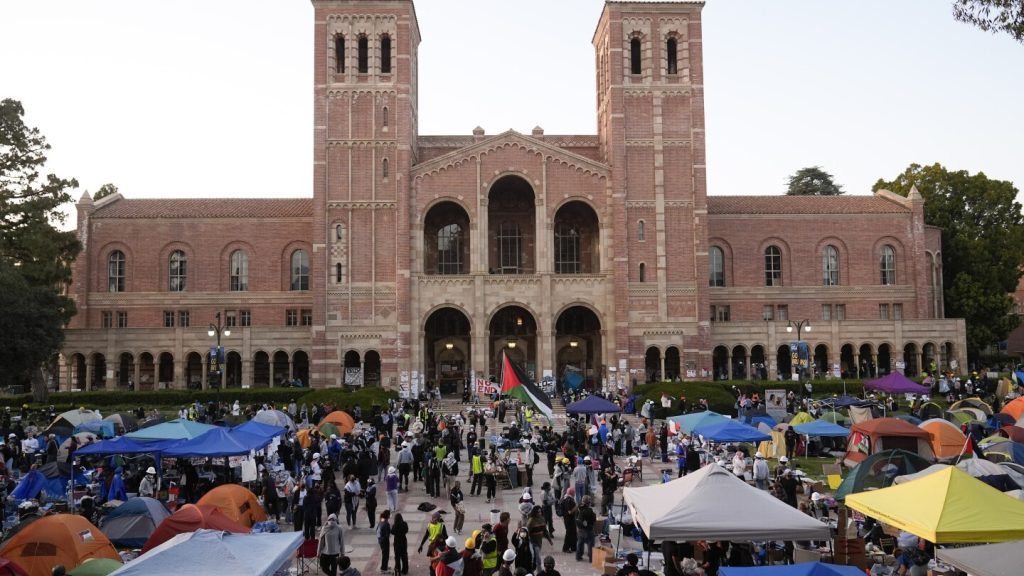House Republicans have called on the leaders of Northwestern University, Rutgers University, and the University of California, Los Angeles to testify about concessions made to pro-Palestinian protesters on their campuses. This move comes in response to tensions over the Israel-Hamas war, which have been high on campuses since the fall and recently spiked with a wave of pro-Palestinian protests leading to over 3,000 arrests nationwide. The hearings aim to examine how colleges have responded to the protests and allegations of antisemitism, with previous hearings resulting in the resignations of presidents at Harvard and the University of Pennsylvania.
The House Committee on Education and the Workforce has been conducting a series of hearings into the responses of colleges to the protests and allegations of antisemitism. Previous testimonies, including one from Columbia President Minouche Shafik, have received criticism for disclosing disciplinary details and concessions around faculty academic freedom. The hearings led to an escalation of protests on campus and inspired similar demonstrations at other colleges. Thursday’s hearing marks the first time the committee is expanding its inquiry to large, public universities, which are governed by First Amendment and free speech considerations.
Northwestern University and Rutgers University were called to testify after reaching agreements with pro-Palestinian protesters to limit or disband encampments. The concessions made by these universities focused on expanding support for Muslim and Arab students and scholars on campus. For example, Northwestern agreed to re-establish an advisory committee on investments that includes student, faculty, and staff input, as well as answer questions about financial holdings linked to Israel. Rutgers agreed to meet with student representatives to discuss divestment requests and stated it would not terminate its relationship with Tel Aviv University. The committee chair, Rep. Virginia Foxx, criticized the schools for negotiating with protesters.
UCLA’s oversight of campus protests has come under scrutiny since counter-demonstrators with Israeli flags attacked a pro-Palestinian encampment on campus. This incident, which involved the use of pepper spray and fighting that lasted for hours before police intervened, drew criticism from Muslim students, political leaders, and advocacy groups. As a result, the police chief at UCLA was reassigned pending an examination of security processes. The committee’s focus on college leadership addressing campus protests raises questions about free speech, academic freedom, and the responsibility of universities to uphold diverse perspectives on contentious issues.
The testimonies of Michael Schill, Northwestern’s president; Gene Block, UCLA’s chancellor; and Jonathan Holloway, Rutgers’ president are expected to shed light on the decisions made by these institutions in response to pro-Palestinian protests. The committee’s inquiries, led by House Republicans, signal a concern over college leaders’ approach to addressing protests on campus, particularly regarding Israel-Palestine issues. The scrutiny faced by educational institutions underscores the challenges of navigating complex geopolitical conflicts within the academic setting and maintaining a balance between free speech and protecting the rights and safety of students from diverse backgrounds.
The impact of these hearings extends beyond the individual universities involved, as they raise important questions about the role of colleges in managing protests related to international conflicts. The push for transparency and accountability from college leaders on how they address protests and protect students from different backgrounds reflects broader societal debates on free speech, academic freedom, and diversity. The outcomes of these hearings could have lasting implications for how universities navigate contentious issues on campus and uphold their responsibilities to provide a safe and inclusive environment for all students.


